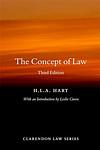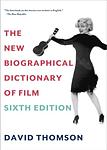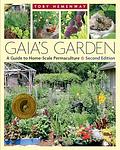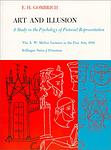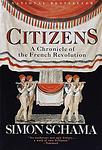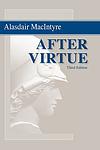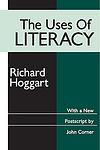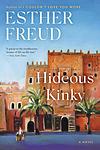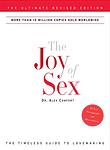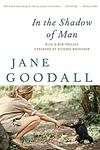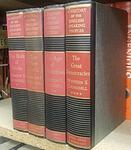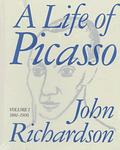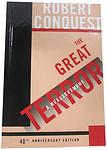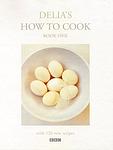The Greatest British, Austrian "Nonfiction" Books Since 1950
Click to learn how this list is calculated.
This list represents a comprehensive and trusted collection of the greatest books. Developed through a specialized algorithm, it brings together 301 'best of' book lists to form a definitive guide to the world's most acclaimed books. For those interested in how these books are chosen, additional details can be found on the rankings page.
Genres
Countries
Date Range
Reading Statistics
Click the button below to see how many of these books you've read!
Download
If you're interested in downloading this list as a CSV file for use in a spreadsheet application, you can easily do so by clicking the button below. Please note that to ensure a manageable file size and faster download, the CSV will include details for only the first 500 books.
Download-
26. The Uses of Enchantment by Bruno Bettelheim
"The Uses of Enchantment" is a psychological analysis of fairy tales and their importance in childhood development. The book argues that these stories allow children to navigate their emotions and understand aspects of life they are yet to experience. By exploring various themes, such as separation anxiety, oedipal conflict, and sibling rivalry, through well-known fairy tales, the author demonstrates how these narratives contribute to a child's moral education and understanding of the human nature.
The 1773rd Greatest Book of All Time -
27. Religion And The Decline Of Magic by Keith Thomas
This scholarly work provides a comprehensive examination of the interplay between magic, religion, and science in sixteenth and seventeenth-century England. It explores how the Protestant Reformation and the rise of scientific thinking led to a decline in the practice of magic. The book delves into the ways people sought to understand and control their world before the widespread acceptance of the scientific method, analyzing why individuals turned to magic and how the Church and state responded. It also considers the transition from a society where magical beliefs were mainstream to one where they were increasingly marginalized and ridiculed, offering a detailed account of this significant cultural shift.
The 1793rd Greatest Book of All Time -
28. The Concept Of Law by H. L. A. Hart
This seminal work in legal philosophy offers a comprehensive analysis of the nature of law, articulating a sophisticated theory that emphasizes law as a system of social rules. It challenges earlier positivist and command theories of law, introducing the idea of the "rule of recognition" as a fundamental aspect by which a society accepts certain norms as legally binding. The book also explores the relationship between law and morality, the variety of legal systems, and the notion of legal rights, ultimately providing a framework for understanding the complex structure and functioning of legal institutions in modern societies.
The 1798th Greatest Book of All Time -
29. On Aggression by Konrad Lorenz
"On Aggression" is a scientific study that explores the concept of aggression in both animals and humans from an ethological (study of animal behavior) perspective. The author argues that aggression is an innate and necessary instinct that has helped species survive and evolve. However, he also emphasizes that this instinct, when unchecked or misdirected, can lead to destructive behavior and violence. The book provides a comprehensive analysis of the biological roots of aggression, its role in the evolution and survival of species, and its implications for human society.
The 1810th Greatest Book of All Time -
30. The Hedgehog and the Fox by Isaiah Berlin
"The Hedgehog and the Fox" is an essay that presents a philosophical and intellectual dichotomy based on a line from an ancient Greek poet, "The fox knows many things, but the hedgehog knows one big thing." The author uses this concept to categorize thinkers and writers into two groups: hedgehogs, who view the world through the lens of a single defining idea, and foxes, who draw on a wide variety of experiences and for whom the world cannot be boiled down to a single idea. The author uses this framework to analyze the works of various historical figures and philosophers.
The 1822nd Greatest Book of All Time -
31. Seven Years in Tibet by Heinrich Harrer
This book is a travel memoir that recounts the author's escape from a British internment camp in India during World War II and his subsequent journey through the Himalayas to Tibet, where he becomes a tutor and friend to the Dalai Lama. The book provides a detailed account of Tibetan culture, customs, and the political turmoil leading up to the Chinese invasion, as seen through the eyes of a foreigner who spent seven years living there.
The 1824th Greatest Book of All Time -
32. A Biographical Dictionary Of Film by David Thomson
"A Biographical Dictionary of Film" is a comprehensive reference book that offers detailed profiles and critical assessments of actors, directors, and other significant figures in the film industry. The work combines factual information with the author's personal and often provocative views, providing both biographical sketches and broader commentary on the cinematic contributions of each subject. The entries not only highlight career milestones and notable films but also delve into the artistic and personal nuances that define the individuals, making it a valuable resource for both film scholars and enthusiasts seeking in-depth insight into the world of cinema.
The 1877th Greatest Book of All Time -
33. Gaia by James Lovelock
The book presents a groundbreaking hypothesis that redefines Earth as a self-regulating system, where the biosphere, atmosphere, oceans, and soil function as a single living organism. This entity, named after the Greek goddess of Earth, maintains the conditions necessary for life through complex interactions among its components. The author, an independent scientist, argues that life on Earth actively shapes the environment for its own survival, challenging traditional views of the relationship between organisms and their habitat. The work has sparked widespread debate and research, influencing fields from biology to environmental science, and has profound implications for our understanding of life on Earth and how we approach environmental stewardship.
The 1884th Greatest Book of All Time -
34. Art and Illusion by Ernest H. Gombrich
"Art and Illusion" is a comprehensive study of the psychology of pictorial representation. The book explores how artists from the Renaissance to the present day have used illusions to enhance their work, and how our brains interpret these illusions. It delves into the science behind our perception of reality and how it influences art, providing a unique perspective on the intersection between psychology, philosophy, and aesthetics. The book also discusses the concept of 'schema' and 'correction' in an artist's work, and how the artist's perception of the world is constantly evolving.
The 2035th Greatest Book of All Time -
35. Citizens by Simon Schama
"Citizens" is a detailed and comprehensive exploration of the French Revolution, offering a fresh perspective on the historical event. The book examines the revolution from its earliest beginnings to its aftermath, delving into the causes, key figures, and the immediate and long-term consequences. It provides a vivid and engaging account, highlighting that the revolution was not just a period of bloodshed and turmoil, but also a time of radical political and social change that shaped the course of modern history.
The 2070th Greatest Book of All Time -
36. After Virtue by Alasdair MacIntyre
This book is a critique of contemporary moral philosophy, arguing that modern ethical theories have failed to provide a coherent basis for moral judgments. The author believes that the Enlightenment project of justifying morality through reason has ultimately failed, leading to a culture of emotivism where moral arguments are reduced to expressions of personal preference. The author suggests a return to Aristotelian virtue ethics, emphasizing the importance of moral character and the role of community in ethical life.
The 2139th Greatest Book of All Time -
37. The Uses of Literacy by Richard Hoggart
"The Uses of Literacy" is a sociological study that explores the impact of mass media and popular culture on traditional working-class values and communities in Britain during the mid-20th century. The author combines personal memoir with scholarly analysis to examine how the spread of American consumer culture and the rise of mass media have influenced British society, especially among the working class. The book serves as a critique of the commercialization of culture and the erosion of authentic, local cultures and traditions.
The 2146th Greatest Book of All Time -
38. Hideous Kinky by Esther Freud
A young woman travels to Morocco with her two daughters in search of a more fulfilling and adventurous life. The novel explores the experiences of the two young girls as they navigate this new and unfamiliar culture, their mother's search for spiritual enlightenment, and their struggles with poverty. The narrative is a poignant exploration of childhood innocence, the complexities of motherhood, and the clash of cultures.
The 2156th Greatest Book of All Time -
39. Postwar by Tony Judt
"Postwar" is a comprehensive analysis of the history of Europe from the end of World War II to the early 21st century. The book examines the major political, cultural, social, and economic changes that have shaped the continent, including the Cold War, the rise and fall of the Soviet Union, the rebuilding of Western Europe, and the challenges of integrating Eastern Europe into the European Union. It also delves into the impact of these events on the daily lives of Europeans, exploring themes of memory, identity, and the struggle to come to terms with the past.
The 2160th Greatest Book of All Time -
40. The Joy of Sex by Alex Comfort
This book serves as a comprehensive guide to human sexual behavior, offering detailed illustrations and instructions on various sexual techniques and positions. The author emphasizes the importance of mutual consent, respect, and emotional intimacy in sexual relationships, and promotes a positive and open-minded attitude towards sex. The book also provides advice on sexual health and contraception, making it a valuable resource for anyone seeking to enhance their sexual knowledge and experiences.
The 2270th Greatest Book of All Time -
41. In the Shadow of Man by Jane Goodall
This book provides a fascinating and detailed account of the author's groundbreaking research on wild chimpanzees in Africa. The author offers insights into the complex social structure, behavior, and personalities of these primates, challenging the then-prevailing scientific belief that only humans were capable of having personalities and emotions. Through her studies, the author revolutionized our understanding of our closest relatives in the animal kingdom, and she also discusses the threats to their survival and the many challenges they face due to human activities.
The 2300th Greatest Book of All Time -
42. A History of the English-Speaking Peoples by Winston Churchill
This book is a four-volume work that provides a comprehensive history of the English-speaking peoples from their earliest origins to the mid-twentieth century. It covers the history of Britain, the United States, Canada, Australia, and other English-speaking countries, exploring their shared cultural heritage, political institutions, legal systems, and social structures. The author, a prominent political figure and Nobel laureate, offers a unique perspective on historical events, including the Roman invasion, the Magna Carta, the American Revolution, and the World Wars.
The 2327th Greatest Book of All Time -
43. A Life of Picasso by John Richardson
This biography delves into the life of one of the most influential artists of the 20th century, Picasso. The book provides an in-depth look into his early life, his relationships, his artistic evolution, and his influence on the art world. It offers a comprehensive exploration of Picasso's personal and professional life, shedding light on his genius and the complexities of his character. The author's detailed research and intimate knowledge of the artist's life make this book a definitive biography of Picasso.
The 2343rd Greatest Book of All Time -
44. The Tao of Physics by Fritjof Capra
The book explores the parallels between modern physics and eastern mysticism. It draws connections between quantum mechanics, relativity theory and concepts in Hinduism, Buddhism, Taoism, and Zen. The author argues that the two seemingly disparate areas of study - physics and mysticism - both seek to understand the fundamental nature of the universe and that they do so in strikingly similar ways. The book challenges conventional thinking and encourages readers to see the world from a more holistic, interconnected perspective.
The 2428th Greatest Book of All Time -
45. The Great Terror by Robert Conquest
"The Great Terror" is a comprehensive analysis of Joseph Stalin's purges in the Soviet Union during the 1930s. The book delves into the brutal and systematic elimination of potential political rivals, intellectuals, and ordinary citizens, who were falsely accused of espionage, sabotage, or being counter-revolutionary. It provides a detailed account of the show trials, executions, and forced labor camps, shedding light on one of the darkest periods in Soviet history.
The 2588th Greatest Book of All Time -
46. The Family, Sex and Marriage in England 1500-1800 by Lawrence Stone
This scholarly work provides an in-depth analysis of the transformation of family life, sexual mores, and marital structures in England from the 16th to the 18th century. It examines the shift from the medieval extended family to the closed domesticated nuclear family, exploring how economic, social, legal, and cultural changes influenced personal relationships and societal norms. The book delves into the roles of love, sex, and marriage during this period, revealing how the evolution of these concepts was intertwined with broader historical developments such as the Protestant Reformation, the rise of individualism, and the changing economic landscape. Through meticulous research, the text presents a comprehensive view of how private life was redefined over three centuries, reflecting the complex interplay between tradition and change in early modern England.
The 2591st Greatest Book of All Time -
47. Chronicles of Wasted Time by Malcolm Muggeridge
"Chronicles of Wasted Time" is an autobiography that explores the life and thoughts of a British journalist and satirist during the 20th century. The book provides a critical perspective on the political and social changes of the time, including the author's experiences in India, Russia, and during World War II. The author also delves into his personal journey from agnosticism to Christianity, offering a profound reflection on faith and spirituality.
The 2593rd Greatest Book of All Time -
48. How to Cook by Delia Smith
This book is a comprehensive guide to cooking, designed for both beginners and experienced cooks. It covers all the basics, from how to boil an egg to preparing complex dishes, with step-by-step instructions and helpful tips. The book also includes a wide range of recipes from around the world, detailed explanations of cooking techniques, and advice on choosing and using kitchen equipment. It's a must-have resource for anyone who wants to improve their culinary skills.
The 2624th Greatest Book of All Time -
49. The Naked Ape by Desmond Morris
This book offers a groundbreaking, zoological perspective on human behavior, examining humans as a species of animal. The author, a renowned zoologist, delves into various aspects of human life including sexuality, child-rearing, and social structures, comparing them with the behaviors of other animals. Through this comparative analysis, the book challenges conventional views on human exceptionalism, arguing that many human behaviors can be understood through our biological and evolutionary origins. The work has sparked considerable debate and discussion, influencing both scientific and popular views on human nature since its publication.
The 2631st Greatest Book of All Time -
50. Three Case Histories by Sigmund Freud
"Three Case Histories" is a compilation of three of the most famous case studies by a renowned psychoanalyst, exploring the complexities of the human mind. The book includes the cases of 'Little Hans', a boy with a phobia of horses, 'The Rat Man', an obsessive-compulsive patient, and 'The Wolf Man', a wealthy Russian aristocrat suffering from a variety of psychoneurotic symptoms. The author uses these cases to demonstrate his theories on psychoanalysis, childhood sexuality, the interpretation of dreams, and the subconscious.
The 2663rd Greatest Book of All Time
Reading Statistics
Click the button below to see how many of these books you've read!
Download
If you're interested in downloading this list as a CSV file for use in a spreadsheet application, you can easily do so by clicking the button below. Please note that to ensure a manageable file size and faster download, the CSV will include details for only the first 500 books.
Download

